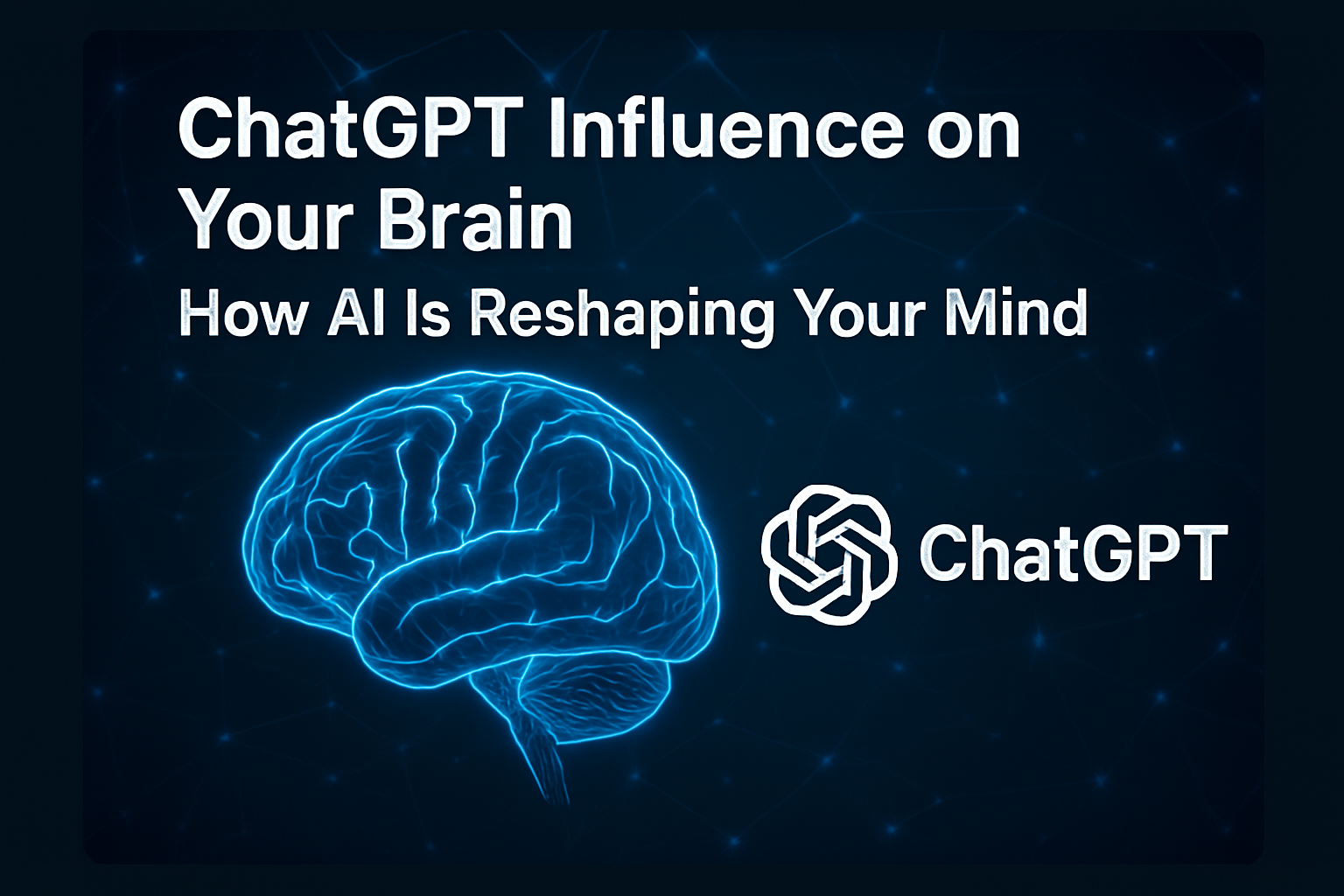ChatGPT is updating how we access information and solve problems. But have you ever thought about how using this AI tool frequently impacts your brain? Over time, connecting with ChatGPT can delicately reshape your thinking habits and mental processes. This blog explores the fascinating relationship between AI and your brain’s neuroplasticity — its ability to change — and shows how you can use ChatGPT wisely to support, rather than weaken, your mental independence.
What Is Neuroplasticity and Why It Matters?
Neuroplasticity can be defined as your brain’s exceptional capacity to realigning itself by forming new neural connections during one’s lifetime. This skill helps you to learn new skills, adapt to changes, and even recover from injuries. When you use tools like ChatGPT, your brain is exposed to new patterns of thought and problem-solving techniques.
However, this influence can be double-edged. While exposure to new ideas can strengthen mental pathways, over-reliance on AI-generated answers may reduce your brain’s practice of independent thinking. This can decrease progressively your natural problem-solving abilities.
If you want to dive deeper, check out this Psychology Today article on neuroplasticity .
How ChatGPT Influences Your Brain
ChatGPT is high powered tool that delivers fast feedback and innovative ideas which ultimately helps to work efficiently and saves time, that’s why it is becoming so popular. Using excessive tools like ChatGPT exposes your brain to new patterns of thought and problem-solving techniques.
Different studies like the NIH show that our brains adopts based on what we do repeatedly. If you always depend on ChatGPT to come up with ideas or solve problems for you, your brain might get acquainted to that and stop working as hard on its own. This could ruin your creativity and critical thinking over time.
But there’s also a positive side. If you use ChatGPT wisely—as a way to build on your own ideas instead of replacing them—it can actually help your brain grow. It gives you access to new information and different ways of thinking, which can boost your learning and creativity.
The Balance Between AI Use and Mental Independence
The actual difficulty is to find a proper balance. Don’t Use ChatGPT replacement of your thinking but use it as an assistant. AI can speed up research and inspire new ideas, but it should not replace your natural ability to analyze, create, and solve problems.
It’s important to draw a line . For example, you might use ChatGPT to explore possibilities but also spend some time on reflecting and building your own thoughts independently. This practice keeps your brain engaged and less likely to become “lazy” or over-dependent.
For more insight into how AI influences human thinking, this Forbes article offers a well-rounded perspective.
Practical Tips to Protect Your Brain While Using ChatGPT
Although ChatGPT can be very helpful but excessive use of it may damage your brain. Here’s how to use AI wisely while protecting mental activity:
1. Don’t depend on AI for everything:Before asking ChatGPT, give your mind a chance to work. First, try to resolve the issues on your own.
2. Think before you trust: Cross check before believing what AI says whether it makes a sense or not.
3. Avoid screens by engaging in creative pursuits like writing or drawing, reading books, or playing brainteasers.
4. Put what you’ve learned into practice: After reading something from ChatGPT, try rephrasing it or applying it in your everyday life.
5. Speak with actual people: Explain what you learn from
By following these steps, you can enjoy AI’s advantages without compromising your cognitive abilities.
Why This Matters for Your Mental Health and Productivity
When you use ChatGPT smartly, you can increase your productivity, save time, and learn new things. It helps you think for yourself, create new ideas, and trust your own decisions.
You may feel tired, struggle to solve problems, and feel anxious if you depend too much and whenever it isn’t available.Challenge and active participation are what your brain thrives on. Regularly pushing yourself is essential to maintaining mental acuity because neuroplasticity means that your brain will reinforce the connections you use the most.
Conclusion
ChatGPT is changing the way we learn and think.To become aware of the science behind neuroplasticity and the impact of artificial intelligence , chatgpt should be used more thoughtfully. To improve your skills try to use it as a partner in a proper proportion rather than as a support that detoriates your mental freedom.
Can ChatGPT really change how my brain works?
Yes. Regular use influences your brain’s neural pathways, shaping your thinking habits.
Is relying on ChatGPT bad for creativity?
It can be if overused. But balanced use can inspire new ideas and learning.
How do I keep my mental independence while using ChatGPT?
Set time limits, question AI answers, and challenge yourself to think independently.
What is neuroplasticity?
It’s the brain’s ability to rewire itself based on experiences, including AI interaction.
Are there benefits to using ChatGPT daily?
Yes, when used wisely. It saves time and expands knowledge without replacing critical thinking.

1 thought on “ChatGPT Influence on Your Brain: How AI Is Reshaping Your Mind”